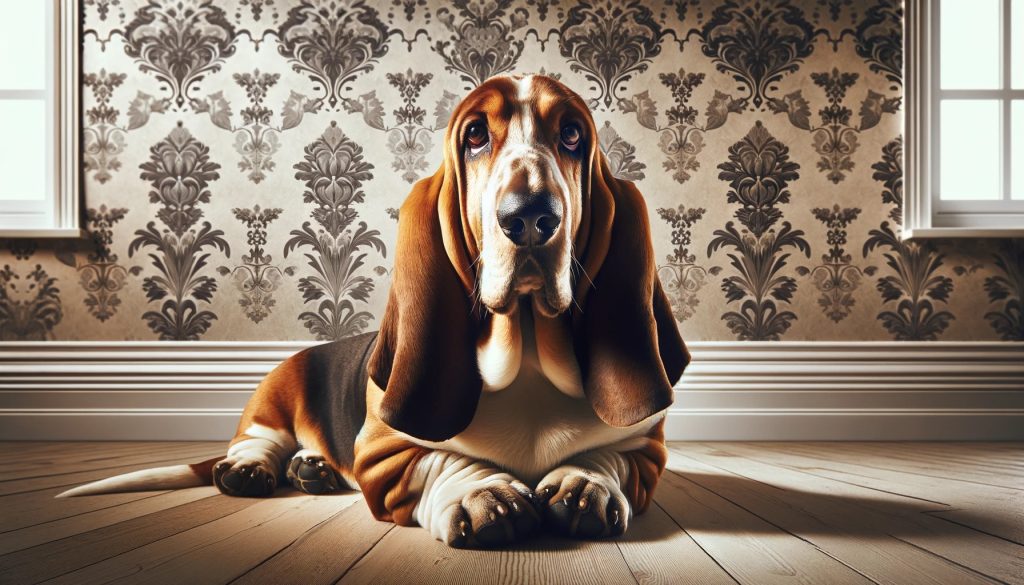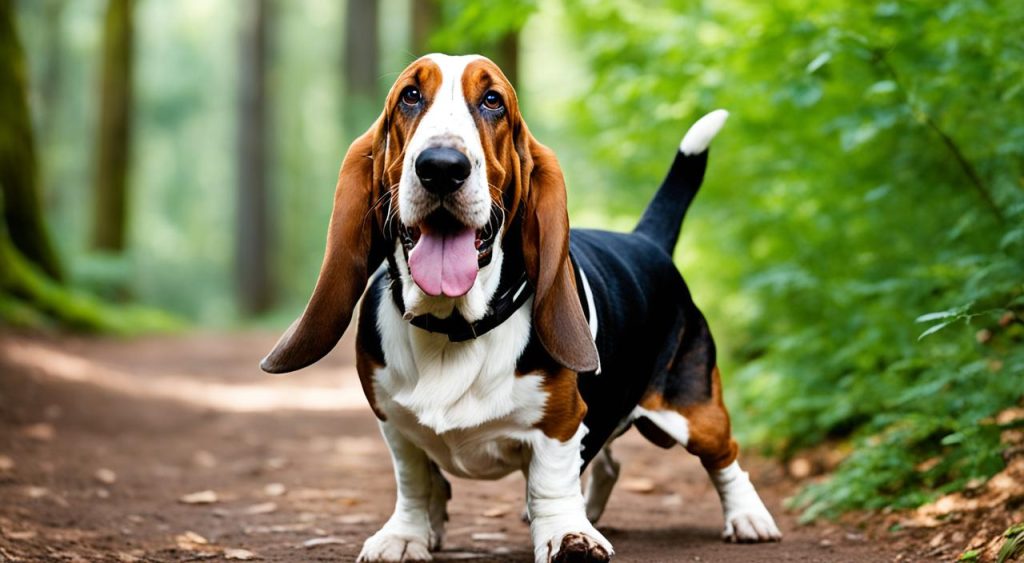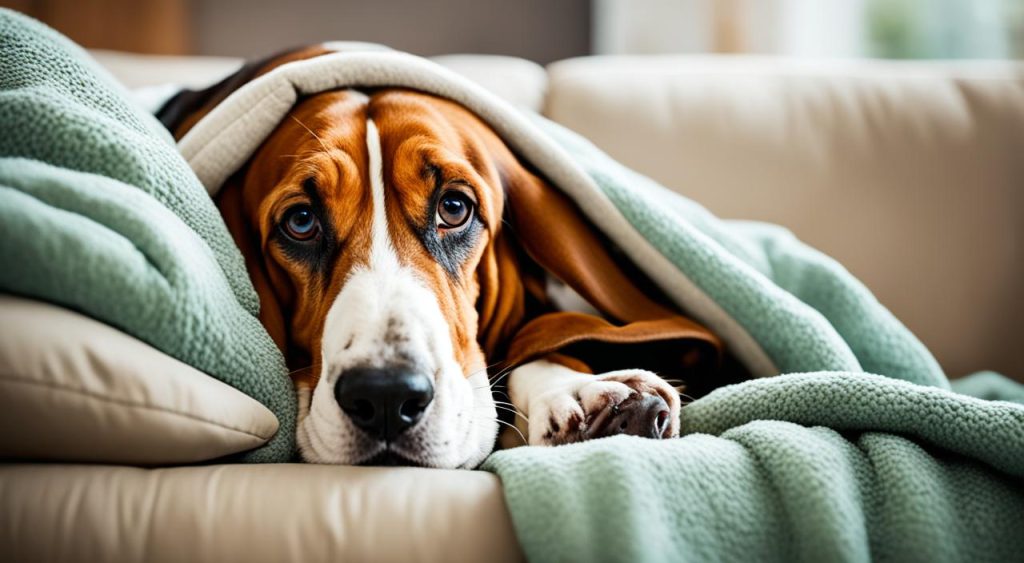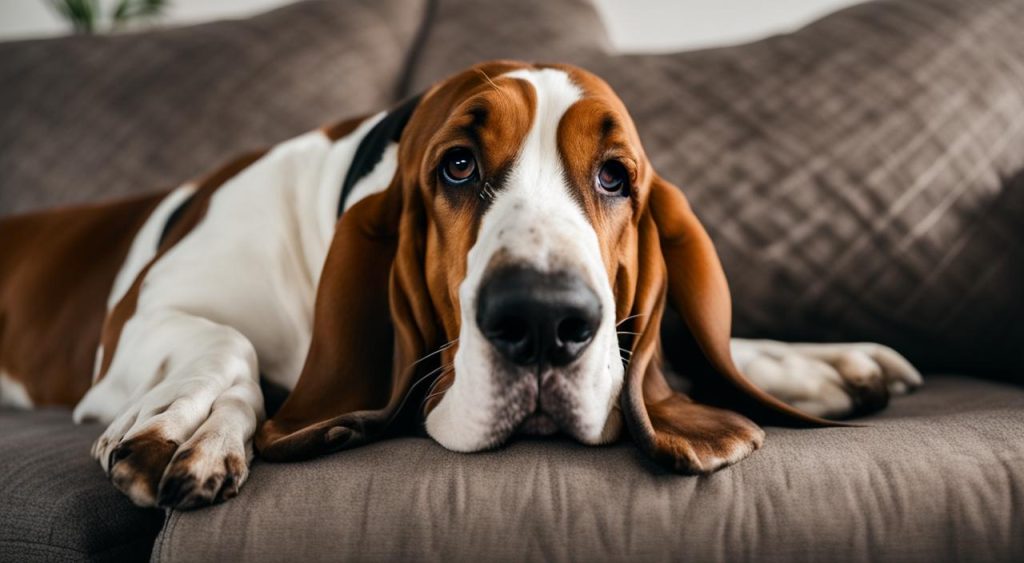When it comes to choosing a new canine companion, it’s important to consider factors that could impact your health and well-being. If you or a family member have allergies, you might be wondering if Basset Hounds are hypoallergenic. In this article, we will explore the truth about Basset Hounds and their hypoallergenic status, as well as provide helpful information on managing dog allergies and creating a safe environment for both you and your furry friend.
Key Takeaways
- Basset Hounds are not hypoallergenic and can trigger allergies due to allergenic proteins in their drool, dander, and fur.
- Hypoallergenic dog breeds exist but no dog breed is completely allergen-free.
- Managing allergens through regular grooming, cleaning, and creating an allergy-friendly environment can help minimize allergic reactions.
- Basset Hounds have unique physical attributes, a laid-back temperament, and moderate shedding.
- Proper grooming, diet, exercise, and preventive care are essential for maintaining the health of Basset Hounds.
Understanding Hypoallergenic Dog Breeds
When it comes to choosing a dog, individuals with allergies often seek out hypoallergenic dog breeds. These breeds are known to produce fewer allergens than others, making them potentially more suitable for people with dog allergies. However, it’s important to note that no dog breed is completely allergen-free.
The level of allergens produced by a dog depends on various factors, including the amount of dander, saliva, and urine they produce. Dander, which consists of tiny particles of skin shed by dogs, is a common allergen that can trigger allergic reactions in sensitive individuals. Dogs with less dander tend to be better tolerated by those with allergies.
“Hypoallergenic dog breeds are breeds that produce fewer allergens than others, but no breed is completely allergen-free.”
If you have allergies and are considering getting a dog, it’s crucial to spend time with the breed you’re interested in before bringing one home. This will allow you to assess your individual tolerance to the specific dog’s allergens. Spending time with a dog can help you gauge if their presence triggers your allergies and enables you to make an informed decision.
While there are several breeds commonly regarded as hypoallergenic, it’s essential to remember that individual experiences may vary. Some breeds that are often considered hypoallergenic include Poodles, Schnauzers, and Portuguese Water Dogs. These breeds typically produce less dander and have hair instead of fur, reducing the amount of allergens they release into their environment.
Ultimately, if you have dog allergies and are exploring hypoallergenic dog breeds, it’s vital to approach the decision cautiously. Spend time with the dog, understand your specific allergies, and consult with your doctor or allergist before bringing a new pet into your home. By taking these precautions, you can increase the likelihood of finding a hypoallergenic breed that suits your needs.
Characteristics of Basset Hounds
Basset Hounds are unique and charming medium-sized dogs with distinct physical attributes and a wonderful temperament. Here’s what you need to know about these lovable companions:
Basset Hound physical attributes: They have short, smooth coats that are generally low-maintenance, making them easy to groom. Their droopy ears and soulful eyes give them a distinctive appearance that melts hearts.
Basset Hound temperament: Known for their friendly and affectionate nature, Basset Hounds make great family pets. They have a laid-back temperament and enjoy spending time with their owners. Their patient and gentle nature makes them generally good with children and other pets.
Basset Hound shedding: While Basset Hounds do shed, their fur is short and does not shed excessively. This makes them ideal for individuals who prefer a low-shedding breed but are prepared to manage moderate shedding. Regular grooming and brushing can help keep their coat in good condition and minimize shedding.
Whether you’re looking for a loyal companion or a family pet, Basset Hounds bring a lot of love and joy to their owners’ lives. Their distinct physical attributes, friendly temperament, and moderate shedding make them a popular choice for dog lovers.
Grooming and Maintenance
Regular grooming is essential for managing shedding in Basset Hounds. To keep your Basset Hound’s coat healthy, it is recommended to groom them at least once a week using a bristle brush. This helps remove loose hair and prevents it from getting tangled or matted. By brushing your Basset Hound regularly, you can minimize shedding and keep their coat looking clean and shiny.
In addition to regular brushing, bathing your Basset Hound once a month is necessary to maintain their hygiene. When bathing your dog, it is important to use a gentle shampoo specifically formulated for dogs. This helps keep their skin moisturized and prevents dryness, which can lead to itching and irritation. However, it is crucial to avoid over-bathing, as this can strip the coat of its natural oils and cause skin problems.
To further manage shedding and reduce exposure to allergens, it is recommended to regularly vacuum your home and use lint rollers on furniture. This helps remove any loose hair or dander that may be present. Additionally, washing your Basset Hound’s bedding regularly can also help minimize allergen buildup. By maintaining a clean living environment, you can create a more comfortable space for both you and your Basset Hound.
Creating an Allergy-Friendly Environment
When it comes to living with a Basset Hound, maintaining an allergy-friendly environment is crucial in reducing allergens and creating a comfortable space for both you and your furry friend.
To minimize the presence of allergens in your home, regular cleaning, vacuuming, and dusting are essential. These simple tasks help remove allergens from surfaces and the air, providing you with a cleaner and healthier living space.
In addition to regular cleaning, it’s important to establish certain areas as off-limits for your Basset Hound. By keeping areas such as the bedroom and couch free from your pet, you can minimize your exposure to allergens and create designated spaces where you can relax and breathe freely.
Another effective way to reduce exposure to allergens is by using hypoallergenic bedding and pillow covers. These specially designed covers act as barriers, preventing allergens such as pet dander from settling on your bedding, further creating an allergy-friendly environment.
Incorporating these measures into your daily routine will significantly contribute to reducing allergens in your home and creating an environment that is more comfortable for individuals with Basset Hound allergies.
Health Considerations for Basset Hounds
When it comes to Basset Hound health, there are a few common issues that owners should be aware of. One of these is obesity. Basset Hounds have a tendency to gain weight, so it’s important to monitor their diet and exercise to prevent obesity. Regular activity and portion control can help keep your Basset Hound at a healthy weight.
Another health concern for Basset Hounds is ear infections. Due to their long, droopy ears, Bassets are prone to ear problems. Regular grooming and cleaning of their ears can help prevent infections. Be sure to check their ears regularly for any signs of redness, discharge, or odor.
Proper nutrition is also vital for maintaining the overall health of a Basset Hound. Feeding them a high-quality dog food that is appropriate for their age and size is essential. You may also consider adding nutritional supplements, such as omega-3 fatty acids, to support their joint health and coat condition.
Regular veterinary check-ups are crucial for monitoring your Basset Hound’s health and catching any potential issues early on. Remember, prevention is key when it comes to maintaining the well-being of your furry friend.
Conclusion
In conclusion, Basset Hounds are not hypoallergenic dogs. They carry allergenic proteins in their drool and dander, which can cause allergic reactions in humans. While they shed less than some other breeds, they are not completely allergen-free. However, with proper grooming, maintenance, and creating an allergy-friendly environment, exposure to allergens can be minimized.
It is important to understand that no dog breed is completely allergen-free. If you have severe allergies, it is recommended to consult with a doctor before getting a pet. Basset Hounds can still be a great choice for dog lovers who can tolerate their allergens with no severe reactions.
Additionally, taking proper care of a Basset Hound’s health is essential. Regular grooming, cleaning their ears, and monitoring their diet and exercise can contribute to their overall well-being. By ensuring their health is in check, you can help them live a happy and healthy life.





